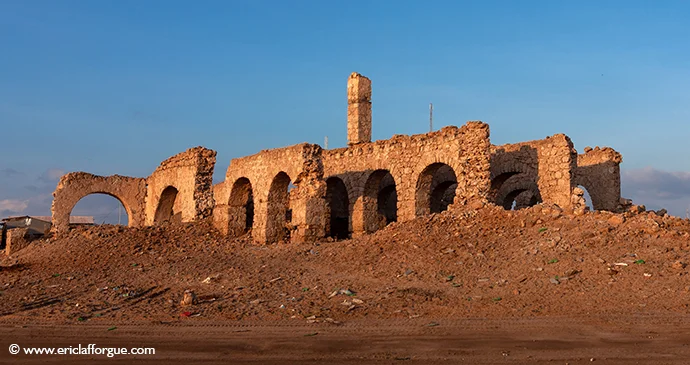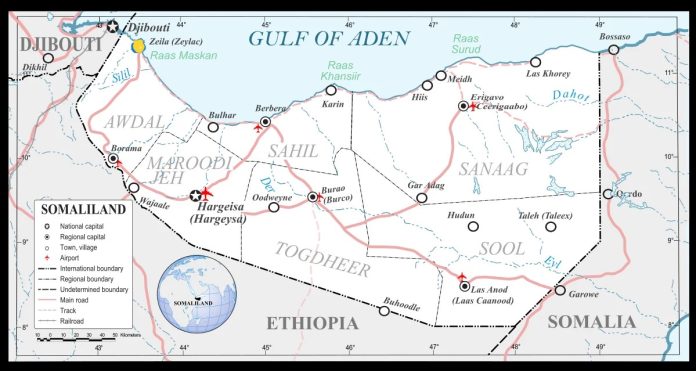Somaliland, a self-declared independent state in the Horn of Africa, finds itself at a crucial juncture in its history. While it has managed to maintain relative stability and foster democratic governance since declaring independence from Somalia in 1991, Somaliland faces economic challenges that hinder its development prospects. One bold proposition that has garnered attention in recent times is leasing the strategic port of Zeila to Ethiopia in exchange for a stake in Ethiopian Airlines.
This article explores the potential benefits and drawbacks of such an arrangement and delves into the broader implications, including the prospect of advancing Somaliland’s international recognition. By examining the positive and negative aspects of this accord and proposing possible negotiation frameworks, we aim to shed light on a transformative opportunity that could change the course of Somaliland’s future.

The Importance of Zeila Port
Zeila, located in Somaliland along the Gulf of Aden, is strategically positioned at the crossroads of international trade routes. Historically, it has served as a key trading port, connecting the Horn of Africa to global markets. However, due to various factors, including the civil conflict in Somalia, Zeila has remained underutilized for decades.
The Positive Aspects of Leasing Zeila to Ethiopia
- Economic Transformation: The cornerstone of this proposal is the potential economic windfall it could bring to Somaliland. Ethiopian Airlines, the largest carrier in Africa, reported revenue of $6.9 billion in 2022. A 20% stake in the airline could translate into billions of dollars for Somaliland, providing a significant boost to its economy. These funds could be directed towards infrastructure development, healthcare, education, and poverty reduction.
- Job Creation: The aviation industry is labor-intensive, and a partnership with Ethiopian Airlines could generate thousands of jobs for Somalilanders. These opportunities, from pilots and flight attendants to ground staff and maintenance crews, could help reduce unemployment and enhance livelihoods.
- Infrastructure Investment: The influx of revenue from Ethiopian Airlines could be directed towards improving and modernizing infrastructure in Somaliland. This includes upgrading roads, ports, airports, and telecommunications networks, which are essential for economic growth.
- Foreign Direct Investment (FDI): The proposed partnership could attract foreign investors eager to participate in the burgeoning aviation sector. This, in turn, could lead to increased FDI in Somaliland’s economy, stimulating further development.
- Tourism Potential: Improved connectivity via Ethiopian Airlines could also boost Somaliland’s tourism industry. The nation boasts unique historical and natural attractions and enhanced accessibility could draw international tourists, generating additional revenue.
- Regional Stability: Economic development through this arrangement could contribute to regional stability. A prosperous Somaliland may act as a stabilizing force in the Horn of Africa, fostering cooperation and peaceful coexistence with neighboring states.
The Negative Aspects and Concerns
- Sovereignty and Control: One of the primary concerns is the potential loss of sovereignty and control over Zeila port. Critics argue that leasing the port to Ethiopia could lead to a loss of Somaliland’s strategic assets, raising questions about long-term control and ownership.
- Political Implications: This proposal may have political implications, both domestically and internationally. Domestically, it could spark debates and political divisions within Somaliland, potentially affecting stability. Internationally, it could complicate Somaliland’s quest for international recognition.
- Negotiation Challenges: Negotiating the terms of the lease and the equity stake in Ethiopian Airlines could be complex. Finding a mutually acceptable arrangement that safeguards Somaliland’s interests while addressing Ethiopia’s concerns would require skillful diplomacy.
- Environmental Impact: The expansion of aviation operations and potential infrastructure development could have environmental consequences. Careful planning and mitigation measures would be essential to minimize adverse effects.
Possible Negotiation Frameworks
To address the concerns and maximize the benefits, negotiation frameworks could be explored:
- Long-Term Lease: A long-term lease agreement, such as a 99-year lease, could provide Somaliland with a steady stream of income while retaining control over the port. This arrangement would allow for revenue generation and infrastructure development.
- Equity and Governance: The partnership could involve shared governance of Zeila port, with representatives from both Somaliland and Ethiopia. This would ensure that decisions regarding the port’s operation are made collaboratively, protecting Somaliland’s interests.
- International Oversight: To address sovereignty concerns, an international oversight body could be established to monitor the terms and conditions of the lease agreement, ensuring that it adheres to international standards and safeguards Somaliland’s interests.
- Diversification of Benefits: Revenue generated from the lease and the equity stake in Ethiopian Airlines could be diversified to benefit various sectors, including education, healthcare, and job training, to ensure a broad-based impact.
Advancing Somaliland’s International Recognition
One intriguing aspect of this proposal is its potential to advance Somaliland’s international recognition. Ethiopia, as a regional heavyweight, could leverage its diplomatic influence to advocate for Somaliland’s recognition by other nations and international organizations. This could be a quid pro quo for Somaliland’s economic partnership with Ethiopia, opening doors to greater diplomatic engagement on the international stage.
Conclusion: A Transformative Opportunity
The proposal to lease Zeila port to Ethiopia in exchange for a stake in Ethiopian Airlines presents Somaliland with a transformative opportunity. While challenges and concerns exist, the potential economic benefits, job creation, and infrastructure development could reshape the nation’s future.
Negotiation and diplomacy will be key in striking a mutually beneficial agreement that addresses sovereignty concerns while harnessing the economic potential of this partnership. Moreover, the prospect of Ethiopia advocating for Somaliland’s international recognition adds another layer of complexity and potential reward.
As Somaliland contemplates this bold step, it stands at the cusp of a historic opportunity to unlock its potential and redefine its role in the Horn of Africa. The decisions made in the coming years will shape the nation’s trajectory and have far-reaching implications for the region.
By Paolo Santos
Horn of Africa analyst
The Horn Daily




























